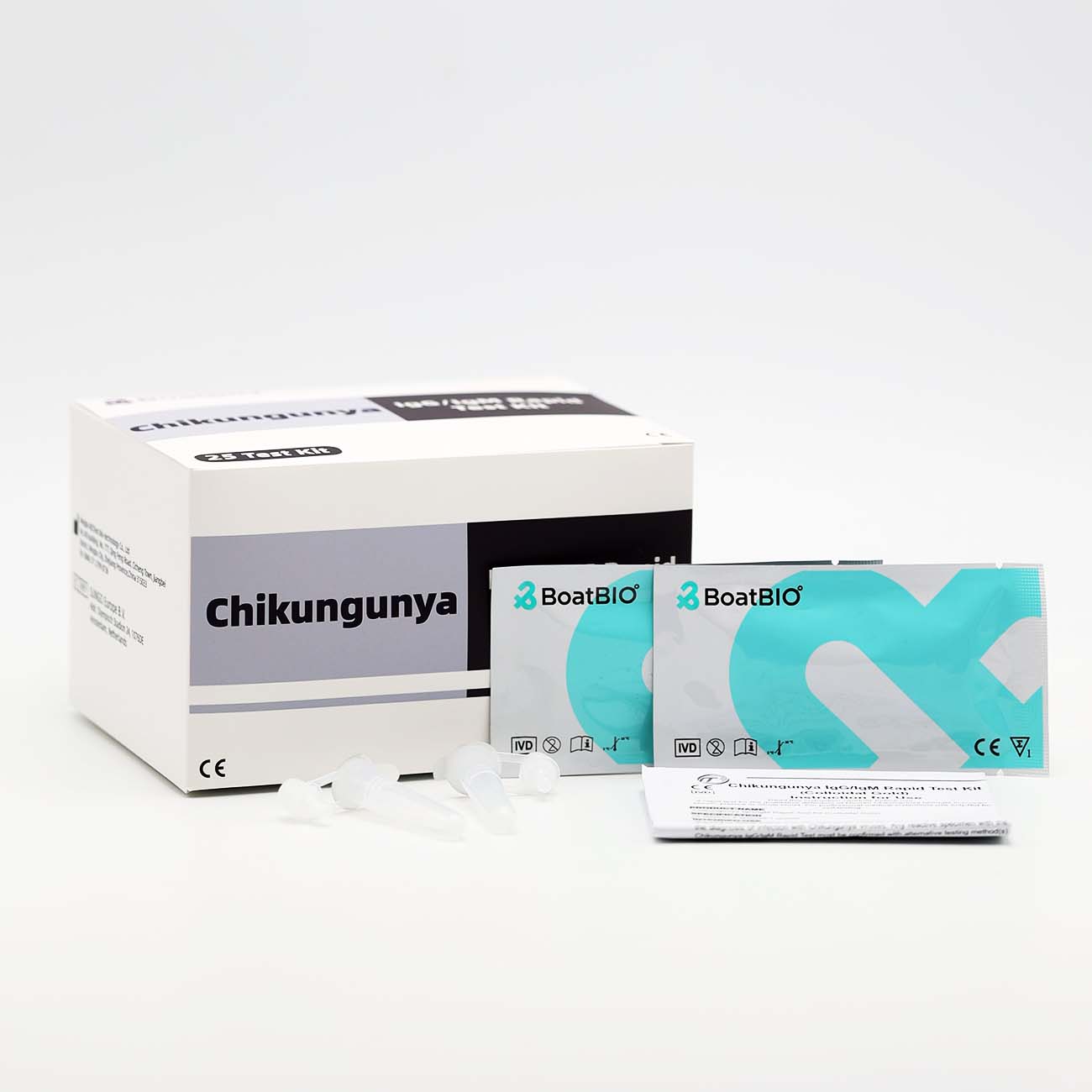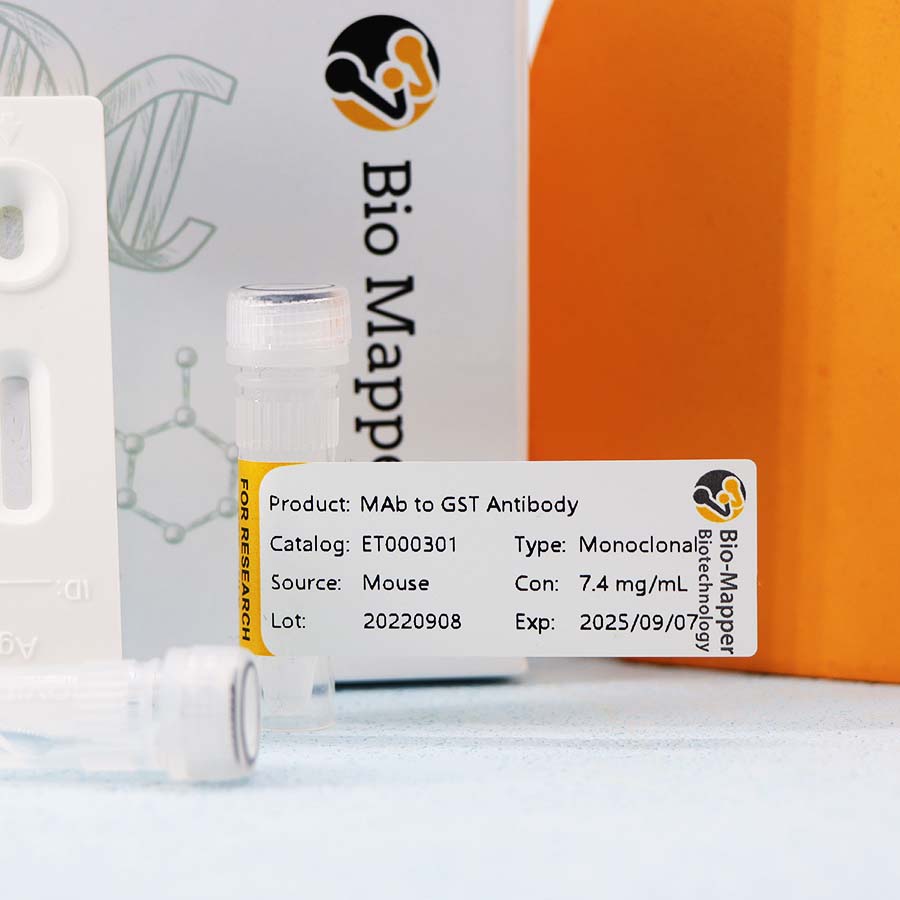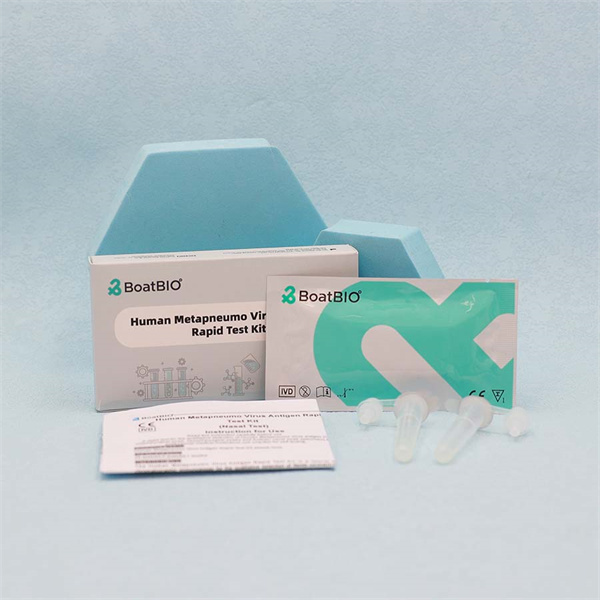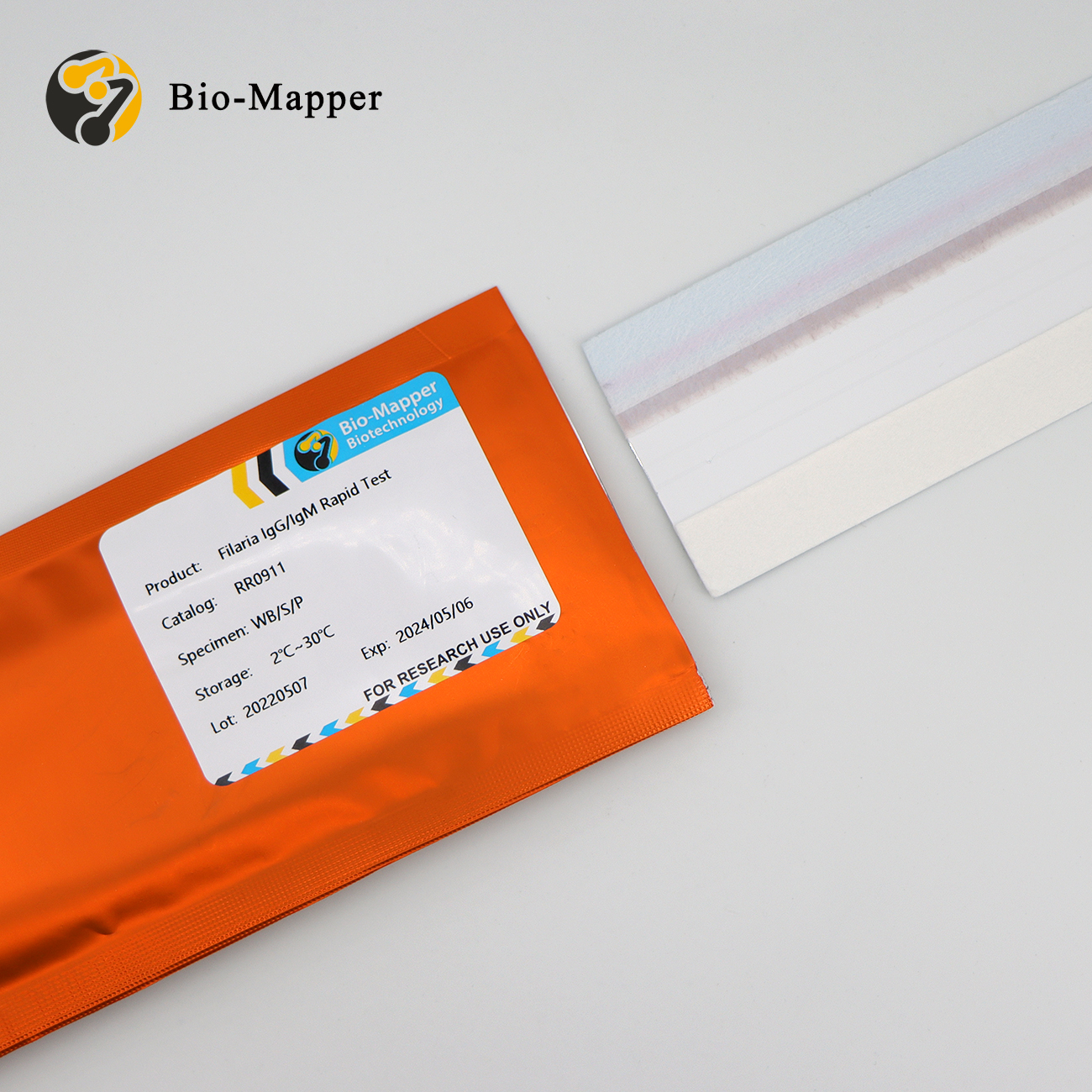SUMMARY AND EXPLANATION THE TEST
Chikungunya is a rare viral infection transmitted by the bite of an infected Aedes aegypti mosquito. It is characterized by a rash, fever, and severe joint pain (arthralgias) that usually lasts for three to seven days. The name is derived from the Makonde word meaning “that which bends up” in reference to the stooped posture developed as a result of the arthritic symptoms of the disease. It occurs during the rainy season in tropical areas of the world, primarily in Africa, South-East Asia, southern India and Pakistan. The symptoms are most often clinically indistinguishable form those observed in dengue fever. Indeed, dual infection of dengue and chikungunya has been reported in India. Unlike dengue, hemorrhagic manifestations are relatively rare and most often the disease is a self limiting febrile illness. Therefore it is very important to clinically distinguish dengue from CHIK infection. CHIK is diagnosed based on serological analysis and viral isolation in mice or tissue culture. An IgM immunoassay is the most practical lab test method. The Chikungunya IgG/IgM Rapid Test utilizes recombinant antigens derived from its structure protein, it detects IgG/IgM anti-CHIK in patient serum or plasma within 20 minutes. The test can be performed by untrained or
minimally skilled personnel, without cumbersome laboratory equipment.
PRINCIPLE
The Chikungunya IgG/IgM Rapid Test is a lateral flow chromatographic immunoassay. The test cassette consists of: 1) a burgundy colored conjugate pad containing Chikungunya recombinant envelope antigens conjugated with colloid gold (dengue conjugates) and rabbit IgG-gold conjugates,2) a nitrocellulose membrane strip containing two test bands (G and M bands) and a control band (C band). The G band is pre-coated with the antibody for the detection of IgG anti-Chikungunya virus, M band is coated with antibody for the detection of IgM anti-Chikungunya virus, and the C band is pre-coated with goat anti rabbit IgG.
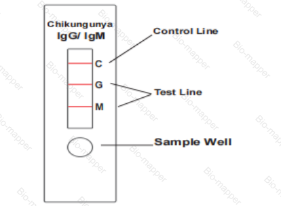
When an adequate volume of test specimen is dispensed into the sample well of the test cassette, the specimen migrates by capillary action across the cassette. IgG anti-Chikungunya virus if present in the specimen will bind to the Chikungunya conjugates. Reagents of different batch numbers cannot be used interchangeably.The immunocomplex is then captured by the reagent coated on the G band, forming a burgundy colored G band, indicating a Chikungunya virus IgG positive test result and suggesting a recent or repeat infection. IgM anti-Chikungunya virus,if present in the specimen, will bind to the Chikungunya conjugates. The immunocomplex is then captured by the reagent pre-coated on the M band, forming a burgundy colored M band, indicating a Chikungunya virus IgM positive test result and suggesting a fresh infection. Absence of any test bands (G and M) suggests a negative result.The test contains an internal control (C band) which should exhibit a burgundy colored band of the immunocomplex of goat anti rabbit IgG/rabbit IgG-gold conjugate regardless of the color development on any of the T bands. Otherwise, the test result is invalid and the specimen must be retested with another device.
